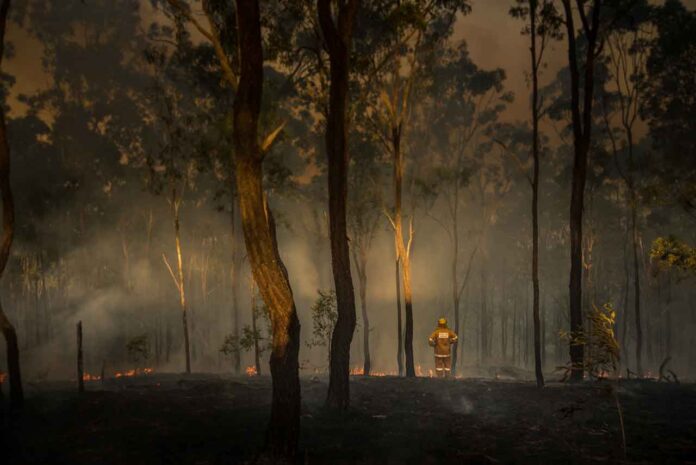Each summer, wildfire disasters in Canada’s endless stretches of forests seem to escalate and become more and more inescapable. The 2024 wildfire season has been no different, aside from perhaps the most high-profile town to date experiencing the kind of all-encompassing destruction that’s become uncomfortably common across the country.
The recent tragedy in Jasper reminds us of the devastating loss of cultural treasures and entrenched ways of life that these wildfires leave in their wake. It usually triggers an urgent desire for residents and government officials to show their resilience and their undaunted pride in their homes through a vow to rebuild. This vow is built on their trust in the local insurance industry to provide a strong and reassuring foundation of support for their rebuilding and recovery efforts.

Bruce Rabik, COO of Acera Insurance, is intimitely familiar with these bonds of trust. Rabik’s advice for people who face these possibilities is to keep your insurance policy number and claims department phone number close at hand and in a secure location when emergency situations are imminent. Rabik states, “In the event of evacuation, you will need this information to get the process started on making claims, possibly even looking into additional living expense (ALE) coverage.”
Another tip he provides for insured individuals is to have an emergency plan in place for one’s family. This of course would include having a prearranged evacuation route, knowing where emergency resources are located in the community, including doing one’s best to protect their property. “You want to show that you are diligently doing your best to respond to any wildfire event. This way you are showing that you are prepared for disaster if you do have to put in a claim.”
Rabik also has advice for those shopping for supplemental plans, despite being mostly covered by employer-provided plans. “We know that many employers don’t have a viable insurance plan for their employees. So, if you are shopping around for an insurance provider, make sure you get a binding offer, not just a quote.” He emphasizes that this is important in case the unexpected happens, as they have in both Lytton and Jasper.
Another issue that pops up with insuring wildfire events is the 50 kilometer radius rule. During the wildfire season, some insurance providers will not bind policies for uncontrolled and active wildfires that are within 50 kilometers of a residence. Some providers will consider binding policies for fires within 25 kilometers, or even if it is under control within 50 kilometers of a residence. However, Rabik states that since this is inconsistent and individual to various providers, it is important to do the research and find out what your provider’s policy is. Rabik states that these tips are important, but it’s just as important to find the best insurance policy as possible, ideally geared to handle these new challenges.
In a recent report, Morningstar DBRS concluded that insurers will be able to weather the 2024 wildfire season, but note that property and casualty insurers will be looking at “earnings pressure” if the wildfire season continues to worsen into the Fall. Given the unpredictability of these fire-related weather events, Rabik is especially concerned about insured individuals knowing about what and what not their plans do offer.
“We all lead busy lives,” says Rabik. “However, it is important that you sit down and confirm your knowledge of what your plan provides, especially in case of disaster or emergency. You owe it to yourself and your family to set aside time to do this.”
In the case of the disaster in Jasper, it is being reported that insured losses could total $700 million dollars, driven by the effect on many tourism-based businesses.
“Jasper is a high-profile reminder that insurers and insured individuals need to do whatever they can to prepare for these events,” Rabik states. He and his colleagues in the industry have continually pressured for more sustained policy concentration on this issue.
Rabik backs up the Morningstar report’s assertion that the insurance industry can sustain losses caused by wildfires in the short term. As the founder of the Canadian Broker’s Network, the country’s largest network of independent insurance brokers, Rabik has a unique understanding of the vital role that Canadian brokers play in the nation’s ability to cope with these disasters.







